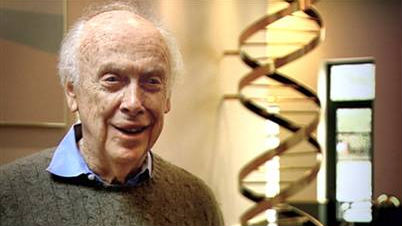Surprising Science
All Stories
“A new study recently published in the journal Psychological Science suggests that we should all stop smirking and start rubbing our rabbit’s foot.”
University of Texas researches want to use tiny solar cells as vehicles to deliver treatment to cancer patients, more targeted treatment than is possible with chemotherapy.
The answer to this question is at the cutting edge of science, but one theory states that dark matter is nothing but ordinary matter in another dimension hovering right above us.
“Physicians say presentations they make are educational, but critics say the practice puts financial rewards ahead of patient care.” The L.A. Times on doctors who moonlight as drug reps.
“Mental tenacity — and the ability to manage and even thrive on and push through pain — is a key segregator between the mortals and immortals in running.”
Lucid dreaming — the premise for Hollywood blockbuster Inception — is real and becoming more common, experts believe.
On the impact of the increased cost of health labor John C. Goodman predicts: “Huge labor market upheaval and high unemployment, looking indefinitely into the future.”
“Can we envision a world without God? Would this world be good?” Dutch primatologist and ethologist Frans de Waal says we are no different from apes when it comes to altruism.
The controversial American charity organization Project Prevention offers cash payments to drug addicts and alcoholics who are willing to forgo having children.
There is a 50 per cent chance that time will end within the next 3.7 billion years, according to a new model of the universe put forward by physicists at U.C. Berkeley.
“Anti-tobacco crusader Joe Califano on how cigarette culture has changed since the days of Don Draper.” The Atlantic tells how the government changed positions on tobacco.
“The way diseases of the psyche are diagnosed is changing rapidly. Doctors are struggling to keep up.” The Economist on the vagueness mental illness diagnoses.
“Psychologist believes seeing images of skinny performers affects the way women and girls eat.” The Independent reports on a call for warning labels on TV programs.
An exposition this week in Paris offered a glimpse of what to expect from photography in the future. The Telegraph profiles Canon’s latest concept technology.
“Even as they become more connected, young people are caring less about others.” The youth’s ability to exhibit an emotional response to another’s distress is in decline.
Former Big Think guest Benoit Mandelbrot, the father of fractal geometry, has died of cancer at the age of 85, according to the New York Times. The newspaper describes him […]
“Raw chocolate—the unrefined fruit of the cacao tree, without added sugar, milk or vegetable fat—is nutritionally superior to even the highest quality dark chocolate.”
“Why do powerful people with so much to lose push so hard to squeeze out a little more gain for themselves?” Psychologists say power can make people blind to their own actions.
French technology may bring joy to the heart of many urban drivers: the city of Toulouse is testing a system that displays available parking spots on your mobile phone.
“Does our inner voice really aid self-control and help us resist temptation? New research suggests the answer is ‘yes.'”
Research on almost a thousand mummies from ancient Egypt and South America found only a handful suffered from cancer when now it accounts for nearly one in three deaths.
“Much of what medical researchers conclude in their studies is misleading, exaggerated, or flat-out wrong. So why are doctors…still drawing upon misinformation?”
Why is there something in the universe instead of nothing? Big Questions Online gives ten answers to perhaps the biggest question to ever vex us.
Personalized cancer treatment once available mainly in Boston is moving across the pond; Britain’s National Health Service is set to expand novel gene testing research.
Dr. James Watson can’t help but speak his mind. And this has gotten the co-discoverer of DNA’s double-helix in trouble in the past. He has been called, among other things, […]
“This research is an important reminder that the unconscious is smarter than we can comprehend, as it processes vast amounts of information in parallel.”
One problem with making public policy on marijuana is the drug’s unpredictable effects: dosage amount, the person and the state they are in upon consumption vary widely.
“Scientists have shown what many dog owners have suspected—while some canines are joyfully optimistic about life, others have a tendency for gloomy pessimism.”
Doctors have injected human embryonic stem cells into a patient partially paralyzed by a spinal cord injury, marking the beginning of the promising but controversial therapy.
“The process of speaking two or more languages appears to enable skills to better cope with the early symptoms of memory-robbing diseases, including Alzheimer’s.”


